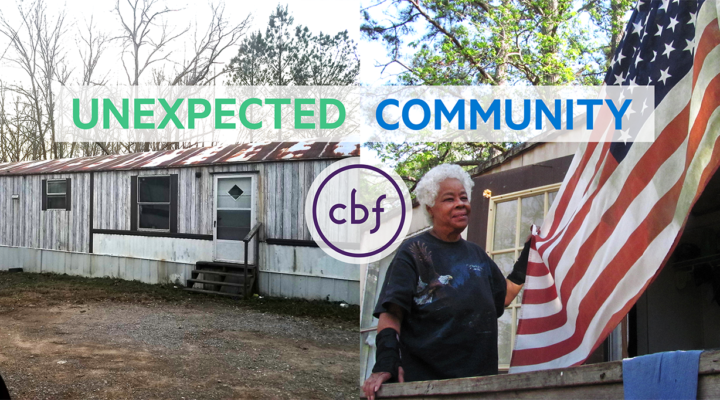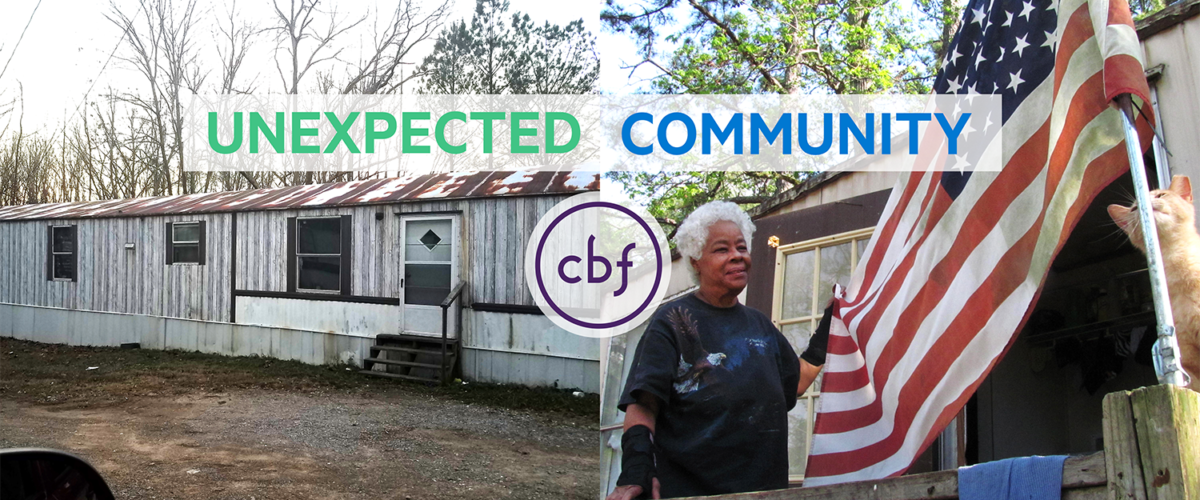By Joshua Hearne
At the back of the Park, you’ll find Winston. He’s in his 40s and is in a powered wheelchair. He’ll be waiting. Winston’s trailer and lot don’t show much evidence, if any, of his past as the handyman of the Chestnut Grounds Trailer Park. That was before he was in the wheelchair. Winston’s trailer has been stripped of much of its interior. The insulation is long gone, along with the vinyl panels that once made up his walls. The kitchen, bathroom and bedroom have been picked over; it’s not clear if that happened last year or last decade. There’s still a refrigerator, a lamp and a single space heater, but that’s the extent of Winston’s meager furnishings.
Going to sleep and rising again in his wheelchair, Winston faces more or less the same routine each day — he mostly waits. He waits on his family, who come to visit him occasionally. He waits on neighbors to stop by to check up on him or, irregularly, to see if Winston can help them in some way. He waits on the worker who will come and take him for dialysis once every week. He waits on somebody to come talk college football with him. Winston has trouble talking and much of what he says nowadays is unintelligible, but “War Eagle” always rings out clear and true to those with a minute to hash out SEC football standings and schedules.
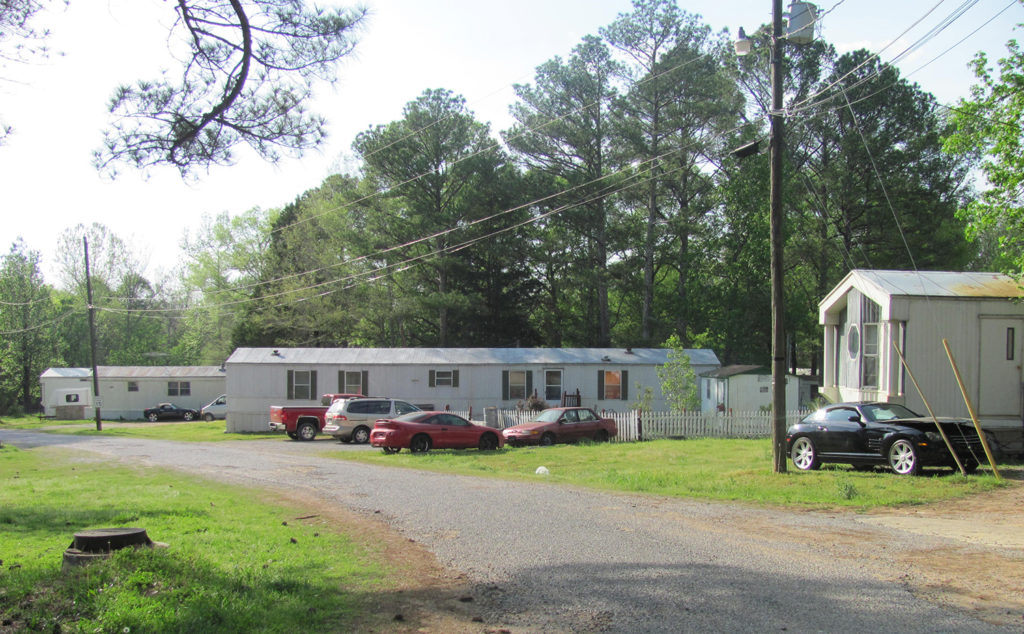
The Chestnut Grounds Trailer Park in Jacksonville, Ala., is becoming a new and ‘unexpected community’ for the members and ministers of FBC Williams, Ala.
But please don’t think this is some storytelling trick where I’m going to come around in another few lines to spring the trap on you. The last line of this story is not: “Winston is waiting on you.” Because, he isn’t. Like so many, Winston waits on the constants in his increasingly inconstant life. Winston waits on the people who are already a part of his life and beloved community. The bright future that Winston dreams of probably doesn’t include a church mission team with a pickup truck full of vinyl panels and appliances. Instead, Winston’s bright future is probably made up of the same people and things that compose his uncertain present. And the truth is: You’re not there. No, Winston isn’t waiting on us, much to our dismay.
Chestnut Grounds Trailer Park is “right off the main road” in Jacksonville, Ala., says Chris Thomas, who for more than five years has been the pastor of First Baptist Church of Williams, a Cooperative Baptist Fellowship partner congregation. Jacksonville is about halfway between Birmingham and Atlanta.
“Chestnut Grounds is in a middle place between suburban and rural spaces. The first thing you notice is the gas station,” Chris explains. That gas station is about the closest thing the Park has to a grocery store, and it is a poor facsimile. The gas station may be named “Fairgarden Grocery,” but the products for sale belie the title and are exactly what you’d expect to see at any convenience store just a little way off a larger thoroughfare. Gas, cheap beer, soda and processed snacks make up the majority of its sales, with milk sold by the pint and fruit at a premium.
“When you turn in,” Chris continues, “the first thing you notice is a pothole big enough for a 3-year-old to swim in.” This is a first sign of the general condition of the trailer park. Few of the residents can name who the owner is and even fewer have actually met him or her. The trailer park is generally thought to be “pretty much a place that’s been thrown away,” says Nikki Haynes, minister to children at FBC Williams and lifelong resident of Jacksonville. You can see this disregard blatantly in the regular sewage problems that plague the 67 lots of Chestnut Grounds. Toilets and bathtubs regularly back up with sewage because there is only one sewage treatment unit for the entire park and it is gravity-fed by four-inch pipes. The sewage problems lead to rotting floors in a number of the trailers, a few of which have long-term residents like Pauline.
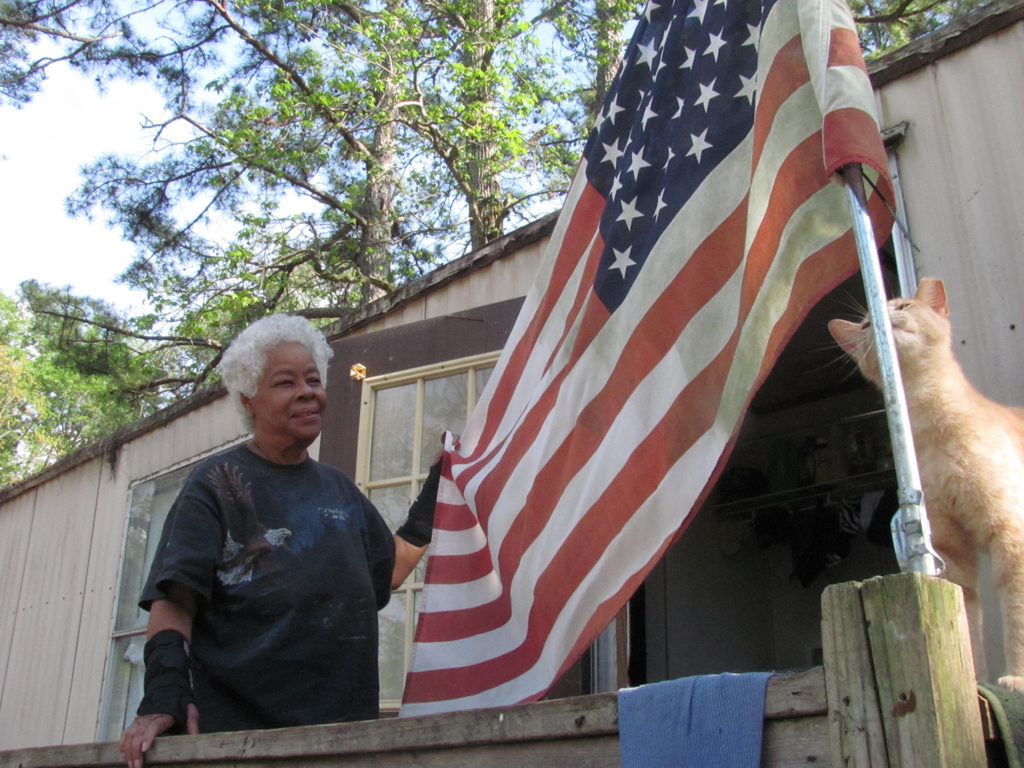
Pauline is the unofficial ambassador for Chestnut Grounds, offering a warm and protective welcome to the community.
Pauline has lived in the Park for many years and is the Park’s unofficial ambassador to the outside world in general, and to the people of FBC Williams more specifically. She has arthritis and asthma and a number of other health concerns; but she is eager to meet newcomers as they make their way through the Park for the first time. It’s not clear from the outset if this is because she is genuinely friendly and outgoing, which she is, or if it’s because she is protective of the Park and her neighbors, which she also is. People with good intentions and predators looking for easy prey look very much alike when you don’t have room to lose much more from your community.
Pauline welcomed Nikki the first time she came to visit the Park. “My goal at the beginning was to change the way people, even myself, look at the Park — not as dangerous or scary, but as people and friends,” Nikki says. The impetus for Nikki’s first visit to Chestnut Grounds was a class at Mercer University’s McAfee School of Theology, where she is studying to earn her Master of Arts in Christian Ministry while also serving on staff at FBC Williams and as a local teacher’s assistant.
A lot has changed in Nikki as she has piloted this adventure in relationship-driven community building along with Chris. Hesitating to call the Park a “ministry” or a “resource,” Nikki and Chris both seem to find it odd to talk about a set goal for their presence at Chestnut Grounds. Rather, they have committed themselves to faithful, consistent presence and careful listening to the stories and leadership of the residents. Relationships are built in proximity and through vulnerability; so the posture of faithful presence for Nikki, Chris and others from FBC Williams is more about listening than talking. It’s much more about “being with” than “doing for.” It is this posture and approach that has begun to create change.
“My view on poverty has changed,” Nikki notes. “There are conferences you can go to that try to explain it, but being in relationship with others who experience it is a different thing. It helps you move past blaming people who might be making bad decisions and focusing on why they have freedom to make only certain decisions.”
Chris, who fell through the rotting floor in Pauline’s home one afternoon while doing some basic repairs, hastily adds to Nikki’s revelation: “We need to get past, ‘Oh, I see Jesus in them’ and just see them. They’re people and they deserve to be seen.”
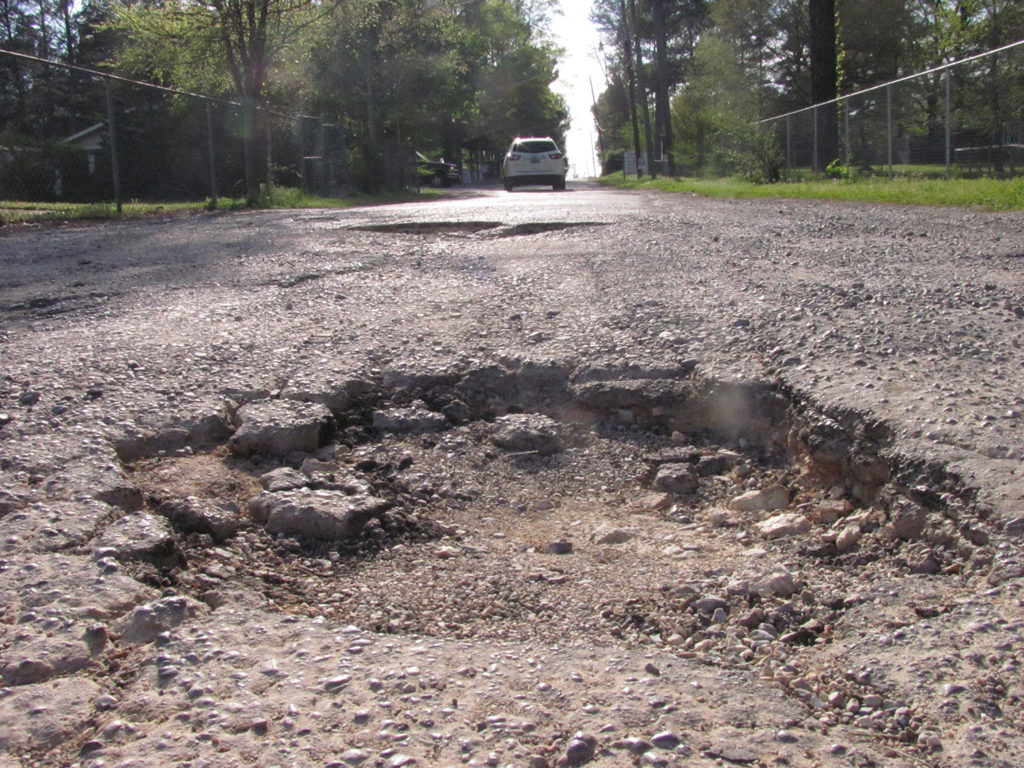
Chestnut Grounds is “right off the main road,” but is in disrepair, with no easy access to a true grocery store, pothole-laden roads and regular sewer problems.
There is a quiet dignity in this slow, steady and loving approach to community. These quiet, unassuming visits to a place where nobody needs them are starting to make changes far more important than the improved floors and new ramps that residents have led them to undertake. As Chris puts it, “They don’t need us. We’re not called to make people need us. We’re called to treat them as our brothers and sisters — which they already are. It’s not just that we know their names, but that they know ours and feel free to call them.”
Winston wasn’t waiting on Nikki or Chris and he’s not waiting on you or me either. But he is waiting on his friends and loved ones, which Nikki and Chris are becoming — perhaps have already become. Calling it a ministry might underestimate what’s happening at Chestnut Grounds. By listening and following, Nikki and Chris have become non-resident members of the trailer park. They’ve found community in an unexpected place. Perhaps it is only in unexpected places that community becomes beloved community. As Nikki so beautifully explained, “We don’t want to come take them to our church, we want to come be the Church with them.”
Nikki and Chris are like Wallace, who likewise has good intentions, if also a drinking problem. Wallace finds a way to slip a few dollars into Chris’s hand every so often to “help these folks out a bit.” They’re like George, who is perhaps everybody’s kindest friend, who pushes Winston around from trailer to trailer, will run to the store for you, and has taken up the responsibility of trash collection and disposal for the community, while also struggling mightily with his own mental illness and profound poverty. They’re like Doyle, who lives in a nearly derelict trailer by a burn pit, but who gives thanks that he’s no longer sleeping in the woods. In their own little way, they’re like Jesus, who made and makes his home with the folks and in the places that the world seems to have thrown away. Like all of us, they’re like the people they spend their time with.
Like Winston, Jesus isn’t waiting on us with his hands tied. Though we pray, “Thy Kingdom come, thy will be done — on earth as it is in Heaven,” Jesus wasn’t waiting for our permission. Our Lord isn’t hoping for congregations to catch up to his beautiful plan with his beautiful people, but is already busy in those unexpected places where Winston and others are waiting for those they already know. The question we’re left with is simple: What are we waiting for?
Joshua Hearne is a member of, and leader with, Grace & Main Fellowship: an intentional, Christian community devoted to hospitality, shared life and resources, and grassroots in community development in Danville, Va.
Read more stories of ministry in the Spring issue of fellowship! magazine, the quarterly publication of the Cooperative Baptist Fellowship. Subscribe for free here. Learn more about CBF at www.cbf.net

